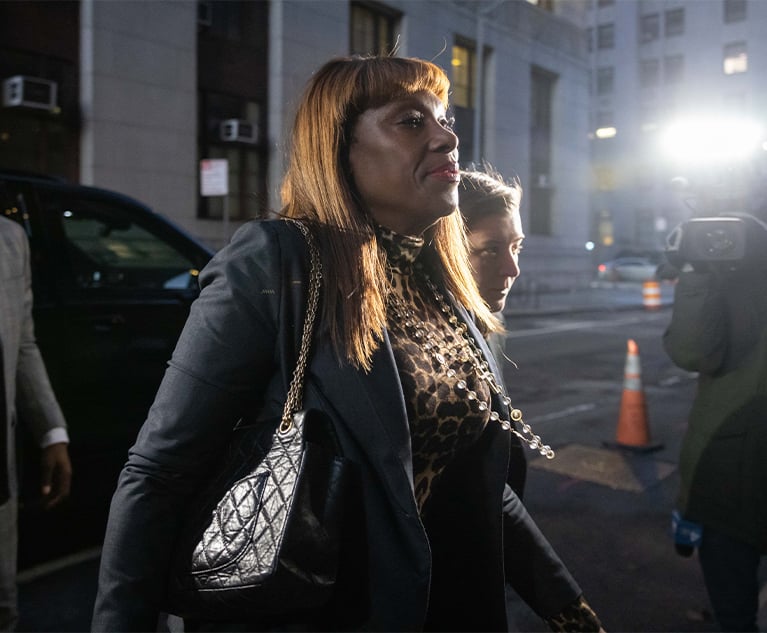Battle Over CityGate Liquor Stores Revived by Second Circuit
Costco sued local Rochester developers over an alleged breach of contract after a rival liquor store's opening kept the bulk shopping giant from getting a license for a nearby store it planned to open.
November 30, 2017 at 04:08 PM
7 minute read
 A battle over liquor store placement in the Rochester CityGate development project will proceed in federal court, the U.S. Court of Appeals for the Second Circuit ordered in a summary judgment Thursday.
A battle over liquor store placement in the Rochester CityGate development project will proceed in federal court, the U.S. Court of Appeals for the Second Circuit ordered in a summary judgment Thursday.
The case arrived at the appellate court after U.S. District Judge David Larimer of the Western District of New York allowed and granted cross-motion for judgment on the pleadings in favor of the defendants, Anthony J. Costello & Son (Spencer) Development and GAP Partners IV.
Plaintiff Costco had sued over breach of contract claims after the defendants allegedly allowed CityGate Wine & Spirits to occupy a building that wasn't part of the agreement between Costello and Costco. The agreement identified specific properties each entity would use for liquor stores. In choosing a different location, Costco claimed its tenant, CHM Liquors, was denied a license by state authorities because CityGate Wine & Spirits was now too close to Costco.
In its cross-motion for judgment, Costello and the liquor store argued the liquor store provision of the agreement was unenforceable under New York State Real Property Actions and Proceedings Law. Larimer agreed, finding that claims of harm done by the denial were misplaced, as Costco's lawyer failed to appropriately contest CityGate Wine & Spirits licensing with the board, but that the board appeared as if it would have denied CHM's license even if CityGate Wine & Spirits had gone in the agreed-upon building.
The panel of Circuit Judges Jose Cabranes, John Walker Jr. and Reena Raggi ruled that Costello and the liquor store failed to meet their burden in the cross-motions. The facts of the case suggest the defendants were aware there was a restriction from the outset, and may have attempted to evade them by referencing the agreed-upon spot for development of the liquor store in amendments to the leasing agreement, the panel found.
The sequence of events suggests that Costco may have very well been able to have its liquor store in place before Costello had the agreement been followed, according to the panel.
“The pleadings here give rise to a plausible inference that Costello's breach injured Costco by depriving it of a similar competitive advantage,” the panel found.
The panel vacated and remanded the case back to the Western District for further proceedings.
Costco was represented by Joseph Hage Aaronson name attorney Gregory Joseph. He declined to comment.
CityGate Wine & Spirits was represented by Nixon Peabody partner Christopher Thomas. Anthony J. Costello & Son (Spencer) Development was represented by Culley, Marks, Tanenbaum & Pezzulo name attorney Glenn Pezzulo. Neither could be reached for comment.
 A battle over liquor store placement in the Rochester CityGate development project will proceed in federal court, the U.S. Court of Appeals for the Second Circuit ordered in a summary judgment Thursday.
A battle over liquor store placement in the Rochester CityGate development project will proceed in federal court, the U.S. Court of Appeals for the Second Circuit ordered in a summary judgment Thursday.
The case arrived at the appellate court after U.S. District Judge David Larimer of the Western District of
Plaintiff Costco had sued over breach of contract claims after the defendants allegedly allowed CityGate Wine & Spirits to occupy a building that wasn't part of the agreement between Costello and Costco. The agreement identified specific properties each entity would use for liquor stores. In choosing a different location, Costco claimed its tenant, CHM Liquors, was denied a license by state authorities because CityGate Wine & Spirits was now too close to Costco.
In its cross-motion for judgment, Costello and the liquor store argued the liquor store provision of the agreement was unenforceable under
The panel of Circuit Judges Jose Cabranes, John Walker Jr. and
The sequence of events suggests that Costco may have very well been able to have its liquor store in place before Costello had the agreement been followed, according to the panel.
“The pleadings here give rise to a plausible inference that Costello's breach injured Costco by depriving it of a similar competitive advantage,” the panel found.
The panel vacated and remanded the case back to the Western District for further proceedings.
Costco was represented by Joseph Hage Aaronson name attorney Gregory Joseph. He declined to comment.
CityGate Wine & Spirits was represented by
This content has been archived. It is available through our partners, LexisNexis® and Bloomberg Law.
To view this content, please continue to their sites.
Not a Lexis Subscriber?
Subscribe Now
Not a Bloomberg Law Subscriber?
Subscribe Now
NOT FOR REPRINT
© 2024 ALM Global, LLC, All Rights Reserved. Request academic re-use from www.copyright.com. All other uses, submit a request to [email protected]. For more information visit Asset & Logo Licensing.
You Might Like
View All
Attorneys 'On the Move': Structured Finance Attorney Joins Hunton Andrews Kurth; Foley Adds IP Partner
4 minute read

NY Civil Liberties Legal Director Stepping Down After Lengthy Tenure

Former Top Aide to NYC Mayor Is Charged With Bribery Conspiracy
Trending Stories
- 1Call for Nominations: Elite Trial Lawyers 2025
- 2Senate Judiciary Dems Release Report on Supreme Court Ethics
- 3Senate Confirms Last 2 of Biden's California Judicial Nominees
- 4Morrison & Foerster Doles Out Year-End and Special Bonuses, Raises Base Compensation for Associates
- 5Tom Girardi to Surrender to Federal Authorities on Jan. 7
Who Got The Work
Michael G. Bongiorno, Andrew Scott Dulberg and Elizabeth E. Driscoll from Wilmer Cutler Pickering Hale and Dorr have stepped in to represent Symbotic Inc., an A.I.-enabled technology platform that focuses on increasing supply chain efficiency, and other defendants in a pending shareholder derivative lawsuit. The case, filed Oct. 2 in Massachusetts District Court by the Brown Law Firm on behalf of Stephen Austen, accuses certain officers and directors of misleading investors in regard to Symbotic's potential for margin growth by failing to disclose that the company was not equipped to timely deploy its systems or manage expenses through project delays. The case, assigned to U.S. District Judge Nathaniel M. Gorton, is 1:24-cv-12522, Austen v. Cohen et al.
Who Got The Work
Edmund Polubinski and Marie Killmond of Davis Polk & Wardwell have entered appearances for data platform software development company MongoDB and other defendants in a pending shareholder derivative lawsuit. The action, filed Oct. 7 in New York Southern District Court by the Brown Law Firm, accuses the company's directors and/or officers of falsely expressing confidence in the company’s restructuring of its sales incentive plan and downplaying the severity of decreases in its upfront commitments. The case is 1:24-cv-07594, Roy v. Ittycheria et al.
Who Got The Work
Amy O. Bruchs and Kurt F. Ellison of Michael Best & Friedrich have entered appearances for Epic Systems Corp. in a pending employment discrimination lawsuit. The suit was filed Sept. 7 in Wisconsin Western District Court by Levine Eisberner LLC and Siri & Glimstad on behalf of a project manager who claims that he was wrongfully terminated after applying for a religious exemption to the defendant's COVID-19 vaccine mandate. The case, assigned to U.S. Magistrate Judge Anita Marie Boor, is 3:24-cv-00630, Secker, Nathan v. Epic Systems Corporation.
Who Got The Work
David X. Sullivan, Thomas J. Finn and Gregory A. Hall from McCarter & English have entered appearances for Sunrun Installation Services in a pending civil rights lawsuit. The complaint was filed Sept. 4 in Connecticut District Court by attorney Robert M. Berke on behalf of former employee George Edward Steins, who was arrested and charged with employing an unregistered home improvement salesperson. The complaint alleges that had Sunrun informed the Connecticut Department of Consumer Protection that the plaintiff's employment had ended in 2017 and that he no longer held Sunrun's home improvement contractor license, he would not have been hit with charges, which were dismissed in May 2024. The case, assigned to U.S. District Judge Jeffrey A. Meyer, is 3:24-cv-01423, Steins v. Sunrun, Inc. et al.
Who Got The Work
Greenberg Traurig shareholder Joshua L. Raskin has entered an appearance for boohoo.com UK Ltd. in a pending patent infringement lawsuit. The suit, filed Sept. 3 in Texas Eastern District Court by Rozier Hardt McDonough on behalf of Alto Dynamics, asserts five patents related to an online shopping platform. The case, assigned to U.S. District Judge Rodney Gilstrap, is 2:24-cv-00719, Alto Dynamics, LLC v. boohoo.com UK Limited.
Featured Firms
Law Offices of Gary Martin Hays & Associates, P.C.
(470) 294-1674
Law Offices of Mark E. Salomone
(857) 444-6468
Smith & Hassler
(713) 739-1250






